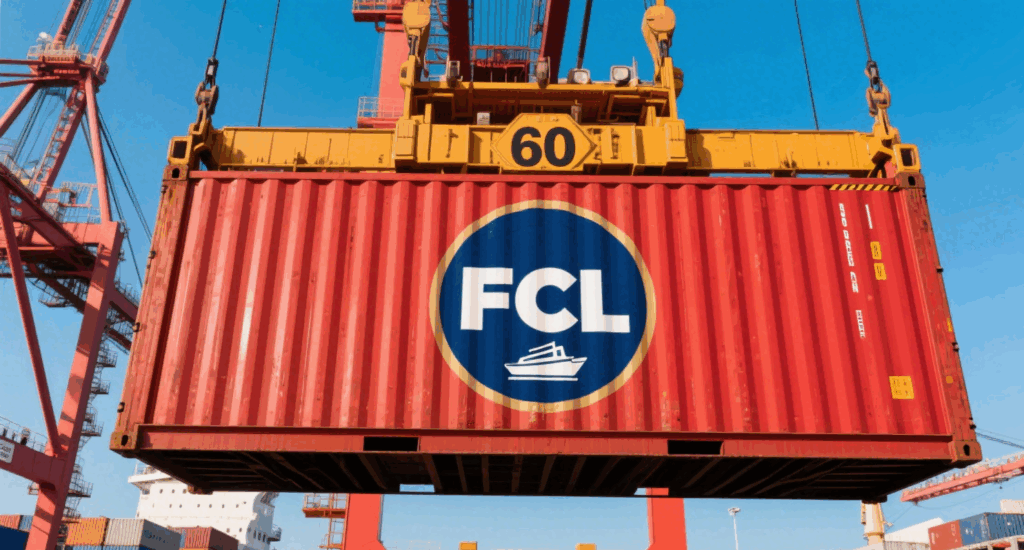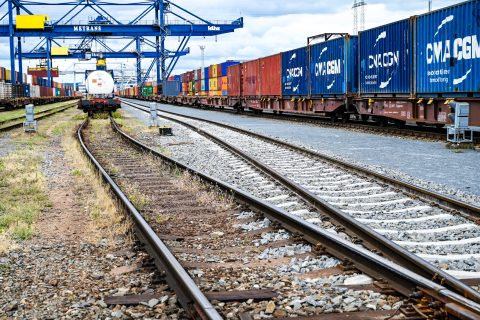Businesses across Europe increasingly rely on fast FCL shipping from China to Italy for bulk imports that demand reliability and efficiency. Whether transporting industrial equipment, furniture, or textiles, Full Container Load (FCL) freight ensures your cargo moves safely and directly—without delays caused by shared containers or extra handling.
Why Choose FCL Shipping from China to Italy?
FCL (Full Container Load) means your goods occupy an entire container, providing superior control and security. Unlike LCL (Less than Container Load), your shipment won’t be delayed while waiting for other cargo to consolidate.
| Feature | FCL (Full Container) | LCL (Shared Container) |
|---|---|---|
| Handling Risk | Low | Higher |
| Speed | Faster | Slower |
| Pricing Basis | Per container | Per CBM |
| Security | Sealed | Opened at hubs |
| Ideal Cargo | Bulk or fragile | Small volumes |
Moreover, FCL enables predictable delivery, making it the preferred choice for Italian importers handling continuous supply chains.

Transit Time and Major Routes
Transit time for fast FCL shipping from China to Italy typically ranges from 25 to 35 days, depending on the origin and destination ports.
| Origin Port (China) | Destination Port (Italy) | Transit Time (Days) |
|---|---|---|
| Shanghai | Genoa | 27–30 |
| Ningbo | Venice | 28–33 |
| Shenzhen | Livorno | 25–28 |
| Qingdao | Trieste | 30–35 |
Additionally, customs clearance and inland delivery may add 4–6 days. Direct routes through the Suez Canal often provide the best balance of cost and reliability. Using carriers like Maersk, MSC, or COSCO ensures fixed schedules with minimal transshipments.
FCL Shipping Costs Explained
The cost of FCL sea freight varies with fuel surcharges, container size, and seasonality. However, prices remain highly competitive compared to air or rail freight.
| Container Type | Average Cost (USD) | Capacity |
|---|---|---|
| 20’ GP | $2,200 – $2,800 | 28 CBM |
| 40’ GP | $3,800 – $4,500 | 58 CBM |
| 40’ HC | $4,000 – $4,800 | 68 CBM |
Moreover, importers should budget for port handling, customs, and trucking, which typically total an additional 10–15% of the base sea freight rate. To illustrate, advance booking can save up to 20% during high-demand seasons.
Real Shipping Case Studies
Here are three actual examples of fast FCL shipping from China to Italy, showcasing typical timelines, routes, and costs.
Case 1: CNC Machinery – Guangzhou to Genoa
Container: 1 × 40’ HC
Cargo: 40 tons of machinery parts
Cost: $4,200
Transit Time: 28 days
Route: Guangzhou → Singapore → Genoa
Outcome: Reduced handling risks, timely customs clearance.
Case 2: Wooden Furniture – Ningbo to Livorno
Container: 1 × 20’ GP
Cargo: 28 CBM
Cost: $2,500 (including clearance)
Transit Time: 26 days
Route: Ningbo → Suez → Livorno
Outcome: 15% cost saving vs. LCL.
Customs and Documentation Requirements
Efficient customs handling is key to maintaining fast FCL delivery. Both China and Italy require detailed shipping documentation.
| Document | Purpose | Notes |
|---|---|---|
| Bill of Lading | Transport contract | Must match invoice data |
| Commercial Invoice | Declares value | Needed for tax calculation |
| Packing List | Lists items | Avoids inspection delays |
| Certificate of Origin | Confirms origin | For customs verification |
| Import License | For specific goods | Required for electronics, chemicals |
Additionally, working with AEO-certified freight forwarders in Italy accelerates clearance and minimizes risk of inspection delays.
Comparing FCL, Air, and Rail Freight
| Mode | Transit Time | Cost (USD/ton) | Best For | Pros | Cons |
|---|---|---|---|---|---|
| FCL (Sea) | 25–35 days | 90–120 | Bulk cargo | Cost-efficient | Slower |
| Rail Freight | 18–22 days | 250–400 | Mid-volume goods | Faster | Limited coverage |
| Air Freight | 5–8 days | 700–1,200 | Urgent cargo | Very fast | Expensive |
Hence, FCL remains ideal when cost control and consistent schedules are priorities. It ensures high-volume shipments move economically while maintaining good delivery times.
Tips for Faster and Smoother FCL Shipping
To ensure efficient logistics, follow these expert recommendations:
- Book early to secure container space, especially before peak months.
- Prepare documents in advance to avoid customs delays.
- Use direct sailings with top carriers for shorter transit times.
- Distribute cargo evenly to avoid overweight penalties.
- Work with experienced agents for door-to-door coordination.
As a result, you minimize detention fees, demurrage, and idle time at ports, ensuring predictable supply chain flow.
Future Outlook for China–Italy FCL Trade
The Belt and Road Initiative continues to strengthen China–Italy trade routes, particularly through Trieste, Genoa, and Venice. Furthermore, digital shipping documentation and eco-friendly fuel vessels are transforming global freight efficiency.
Indeed, new logistics technologies—such as AI-driven scheduling and blockchain documentation—are reducing delays, improving visibility, and supporting sustainable trade. Therefore, importers choosing fast FCL shipping from China to Italy today gain not only cost advantages but also long-term logistical reliability.
Conclusion
In summary, fast FCL shipping from China to Italy combines cost-effectiveness, reliability, and scalability—ideal for importers seeking stable international logistics. With fixed container pricing, minimal handling, and direct port connections, it remains the backbone of China–Europe maritime trade.
Therefore, partnering with an experienced freight provider ensures timely, secure, and seamless cargo delivery every time.
Request a Quote
Need a tailored solution for your shipping from China?Let TJ China Freight Forwarder assist you with reliable, cost-effective service.
FAQ:
Q1.What makes FCL shipping faster than shared container options?
FCL containers move directly after loading, avoiding delays from consolidation, ensuring faster and more predictable delivery from China to Italy.
Q2.How can I estimate total cost for FCL freight services?
Add base sea freight, customs fees, port charges, and inland trucking to calculate accurate FCL shipping cost from China to Italy.
Q3.Which Chinese ports offer the quickest FCL departures to Italy?
Shanghai, Ningbo, and Shenzhen provide frequent sailings and faster handling, ideal for consistent FCL shipping schedules to Italy.
Q4.Can fast FCL shipping handle fragile or oversized cargo?
Yes, specialized containers like open-top and flat-rack units support secure shipment of heavy or irregular cargo between China and Italy.
Q5.Do I need insurance for FCL cargo shipments?
Cargo insurance is recommended to protect goods against damage or loss during sea freight transit from China to Italian ports.




